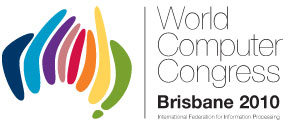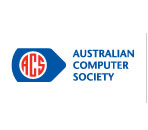The IFIP International Conference on Artificial Intelligence in Theory and Practice (IFIP AI 2010) is the third in a series organized by IFIP Technical Committee 12 (Artificial Intelligence) and its Working Group 12.5. Authors should highlight the benefits of AI technology for industry and services. Papers describing advanced prototypes, systems, tools and techniques and general survey papers indicating future directions are also encouraged. Papers describing original work are invited in any of the areas listed below. Acceptance will be based on quality, relevance and originality, and, above all, on the practical value of the work. There will be both oral and poster presentations.
- Industrial Applications of Artificial Intelligence Speech and Natural Language Interfaces
- Intelligent Decision Support Systems
- Intelligent Agents
- Integration of AI with other Technologies
- Distributed AI Algorithms, Techniques, and Applications
- Evaluation of AI System
- Distributed AI Systems and Architectures
- AI Languages, Programming Techniques and Tools
- Intelligent Systems Engineering & Design Methodologies
- Knowledge Acquisition
- Structured and Unstructured Data Mining
- Expert Knowledge-based Systems
- Case-Based Reasoning Systems
- Fuzzy Logic and Plausible Inference
- Hardware and Robotics
- Neural Network
- Social Impact and Implications of AI
- Evolutionary Computation and Algorithms
- Business Process Management & Enterprise Portals
- Intelligent Tutoring Systems
- Ontologies and Semantic Web
- Machine Vision
- Knowledge and Information Management
- Intelligent Information Retrieval
- Learning and Adaptive Systems
- Genetic Algorithms
- Evolutionary Programming
- Planning and Scheduling
- Inter-organisational KM portals
- Bayesian Networks and Stochastic Reasoning
- Organisational Memory Knowledge Systems





